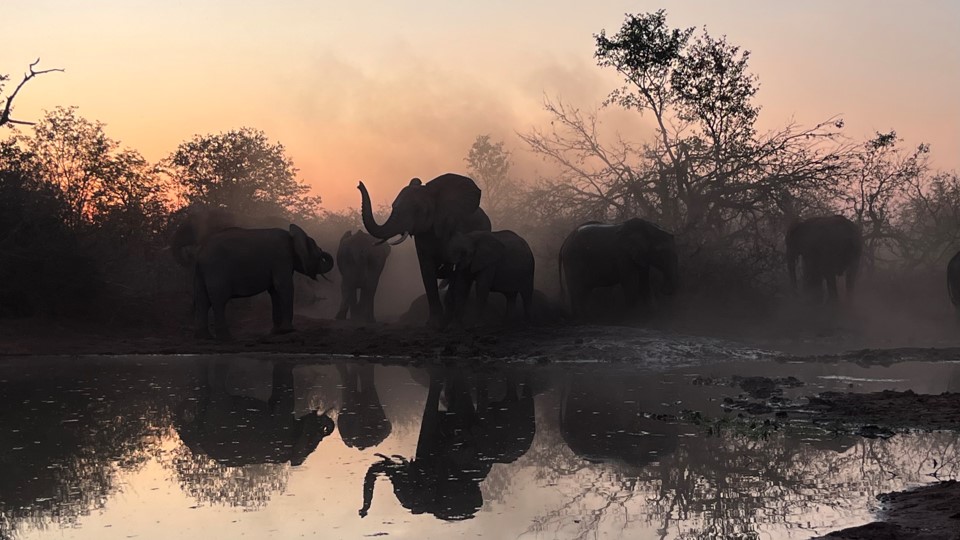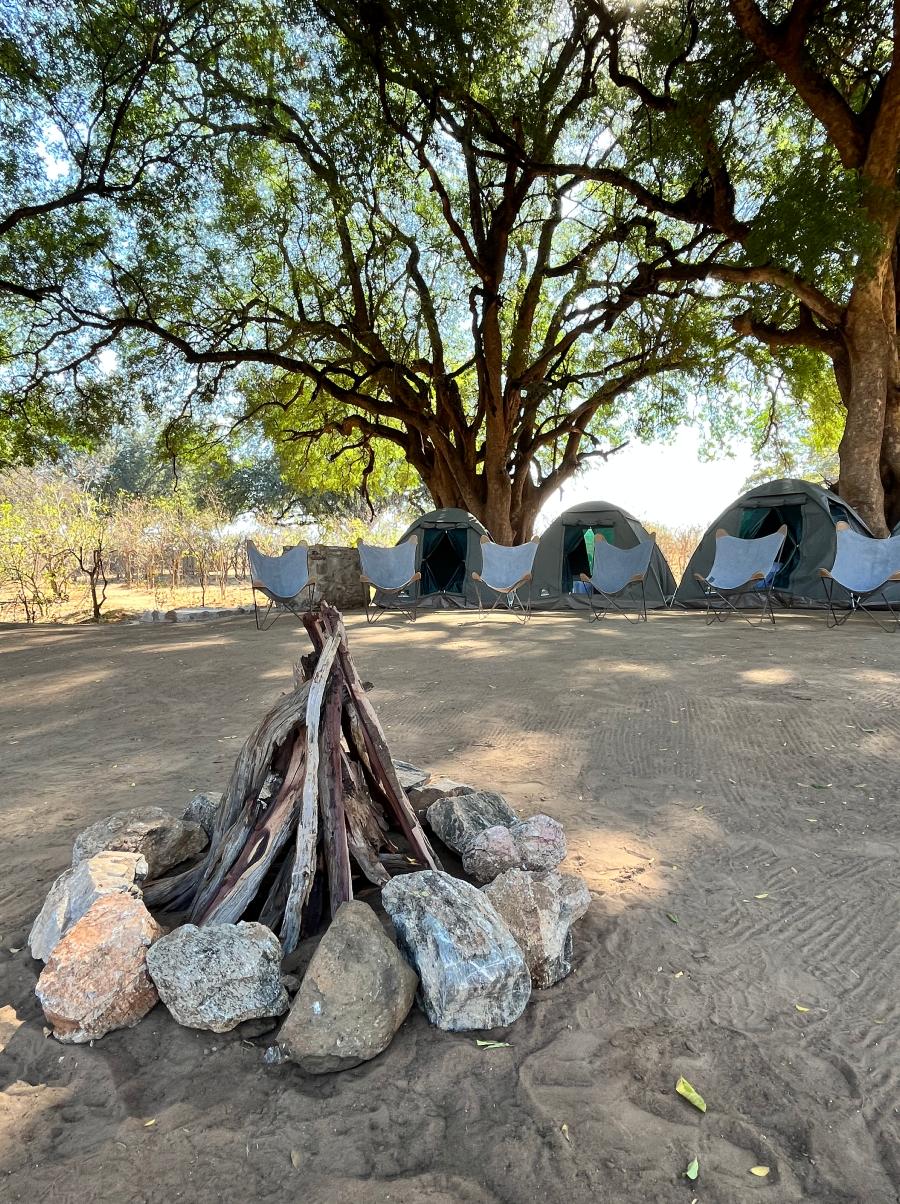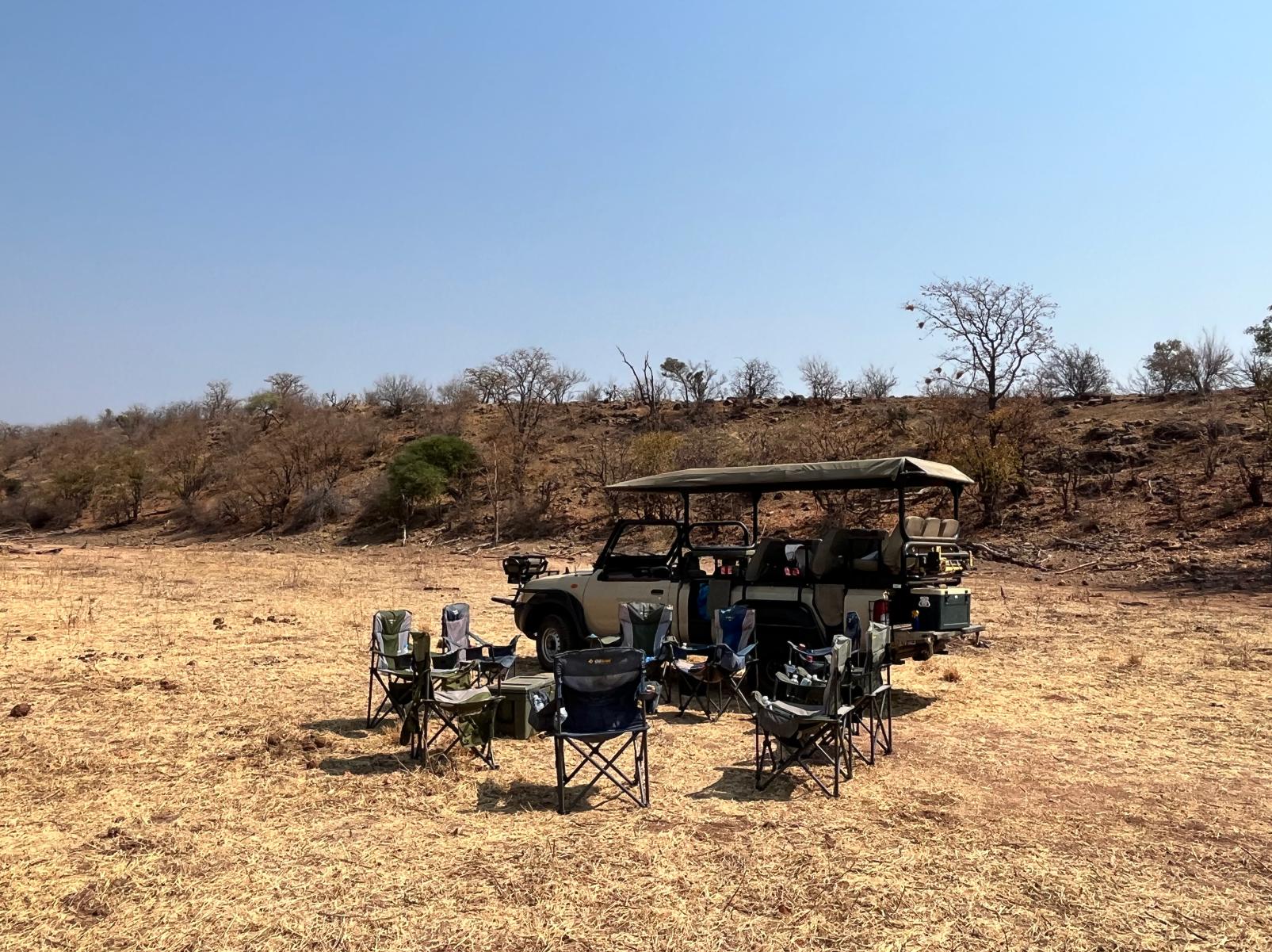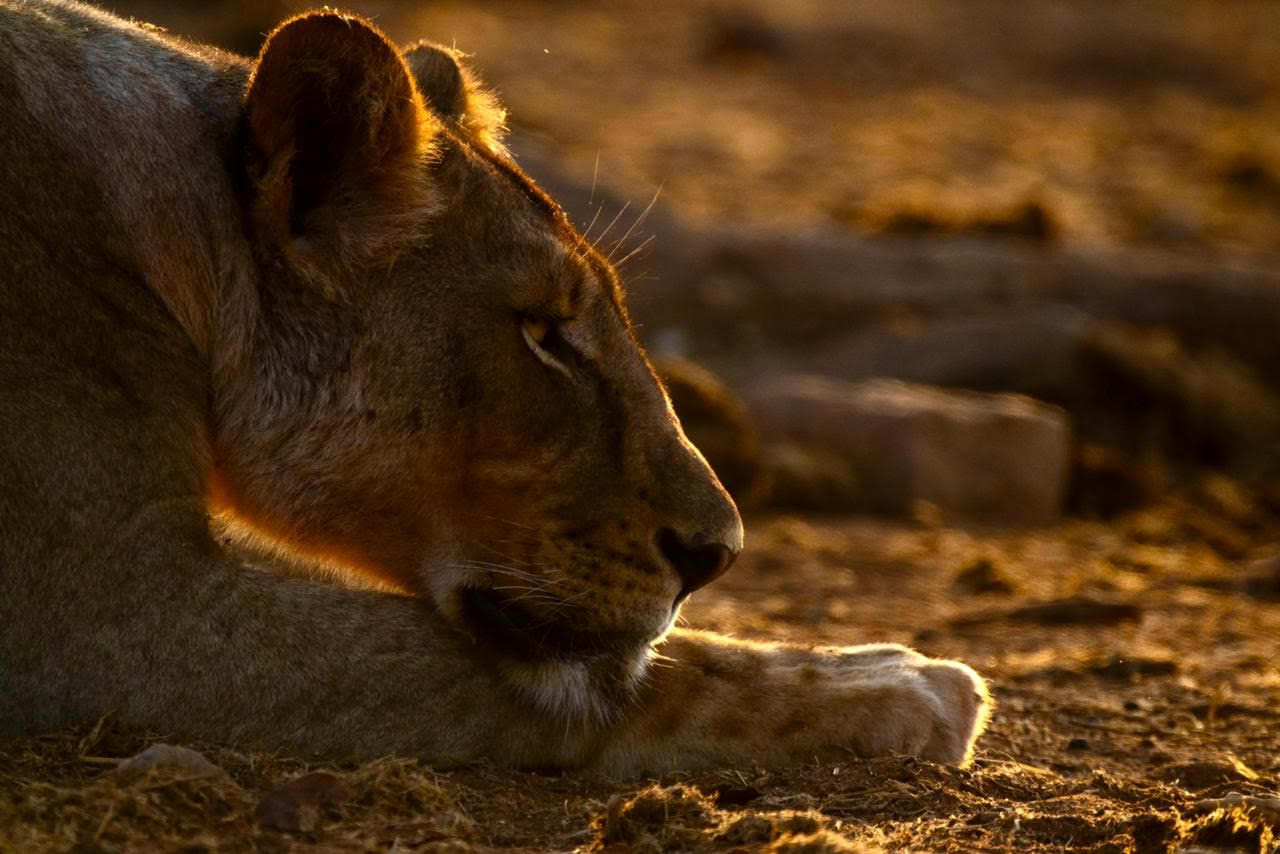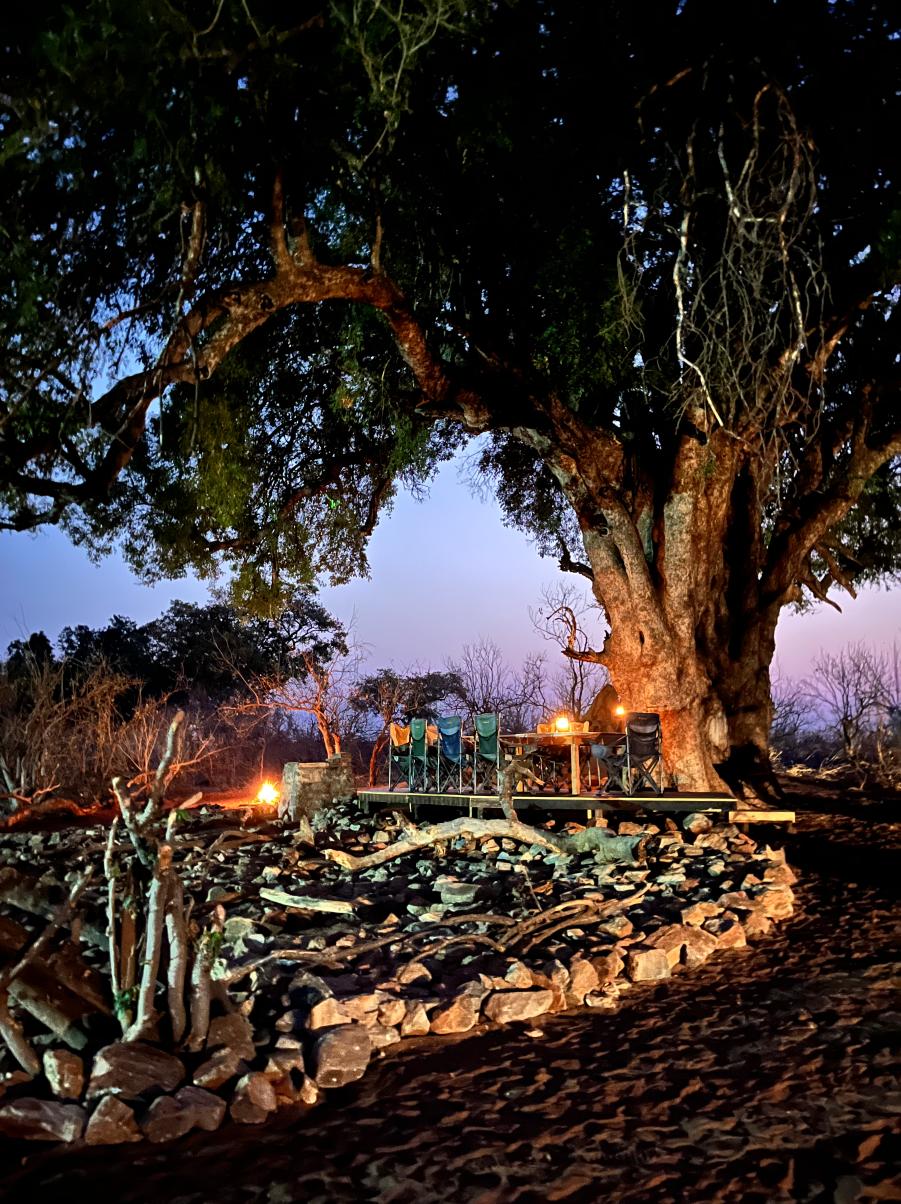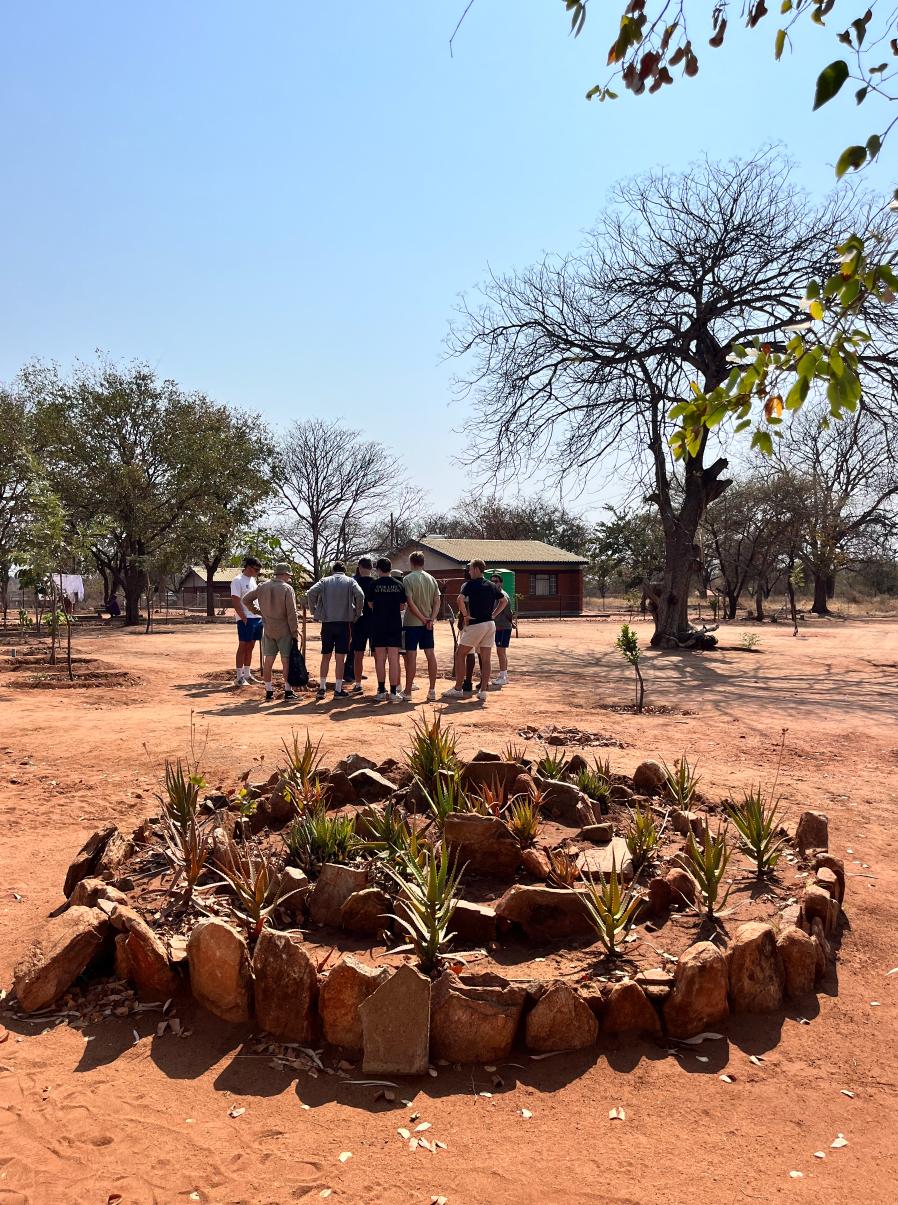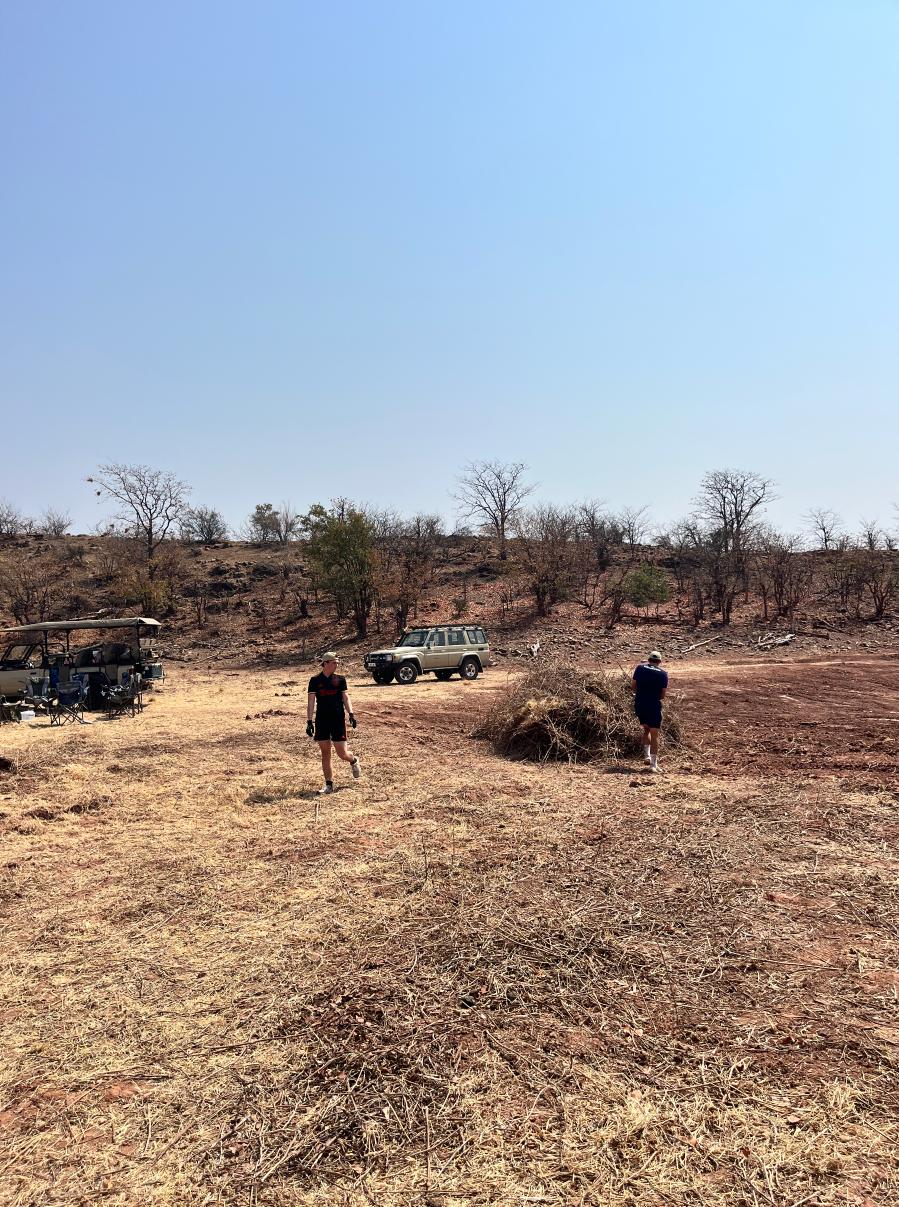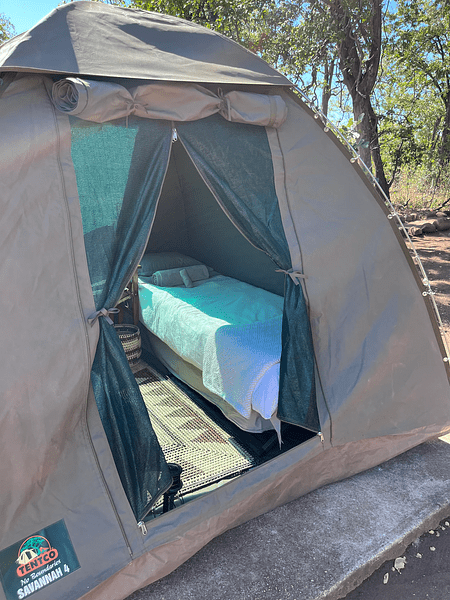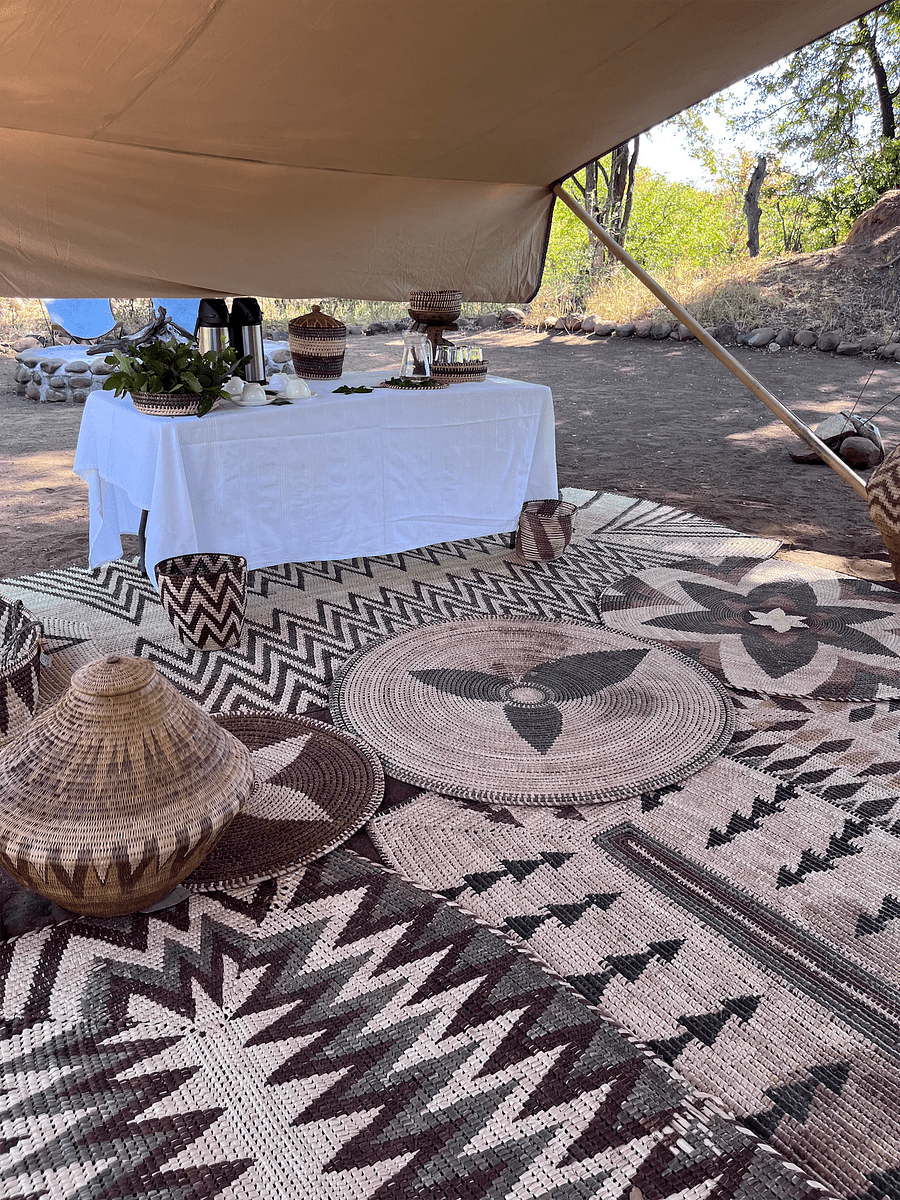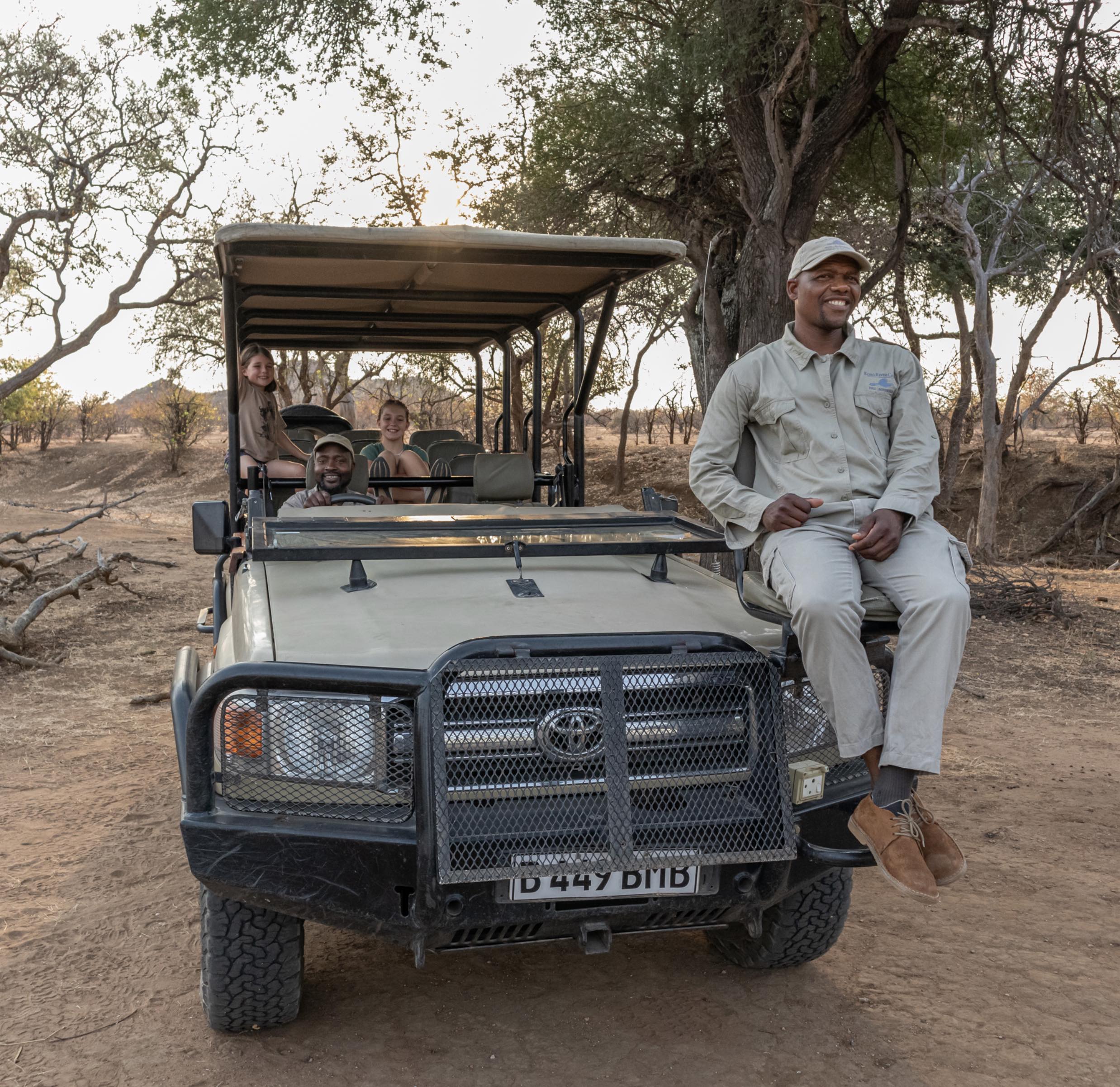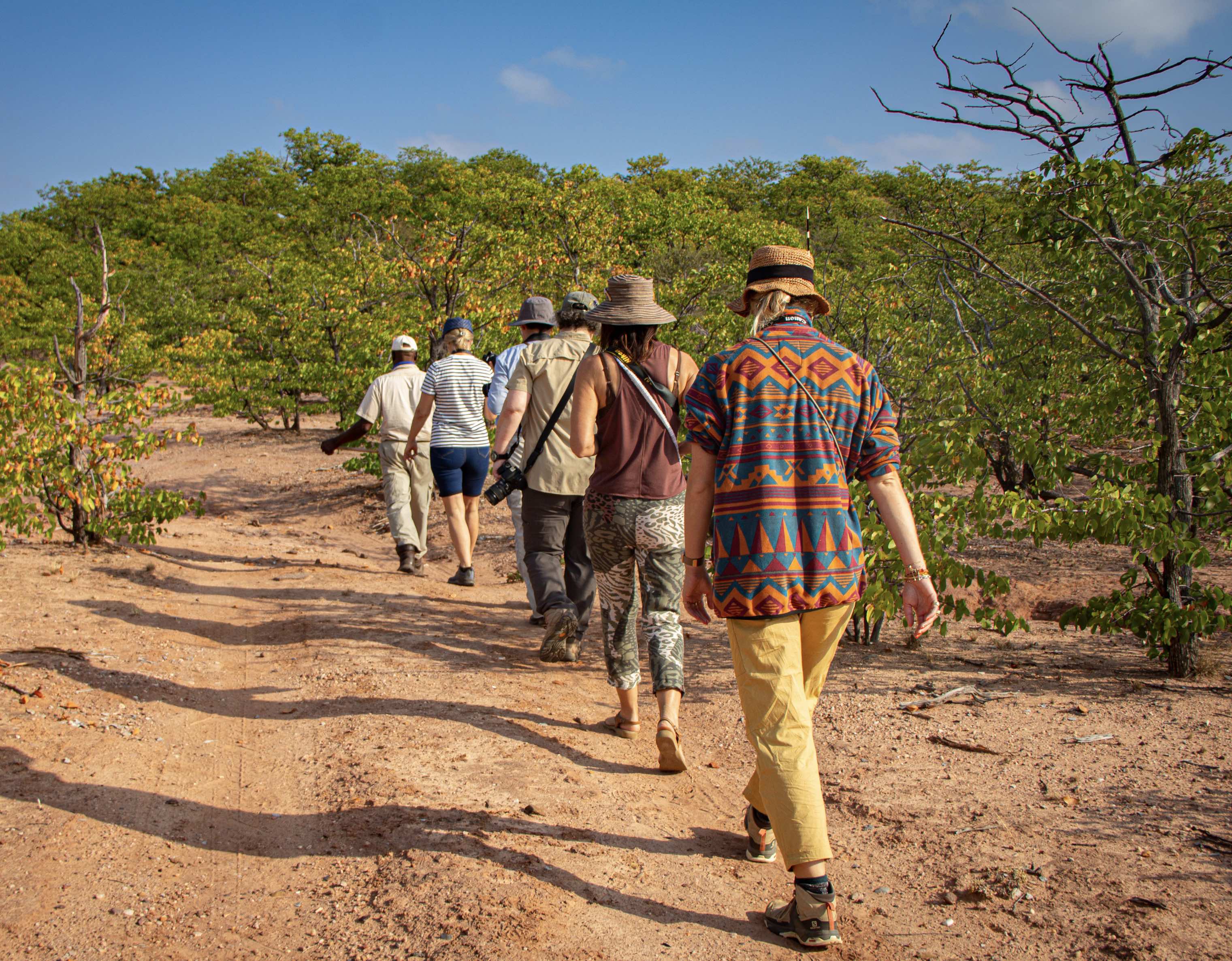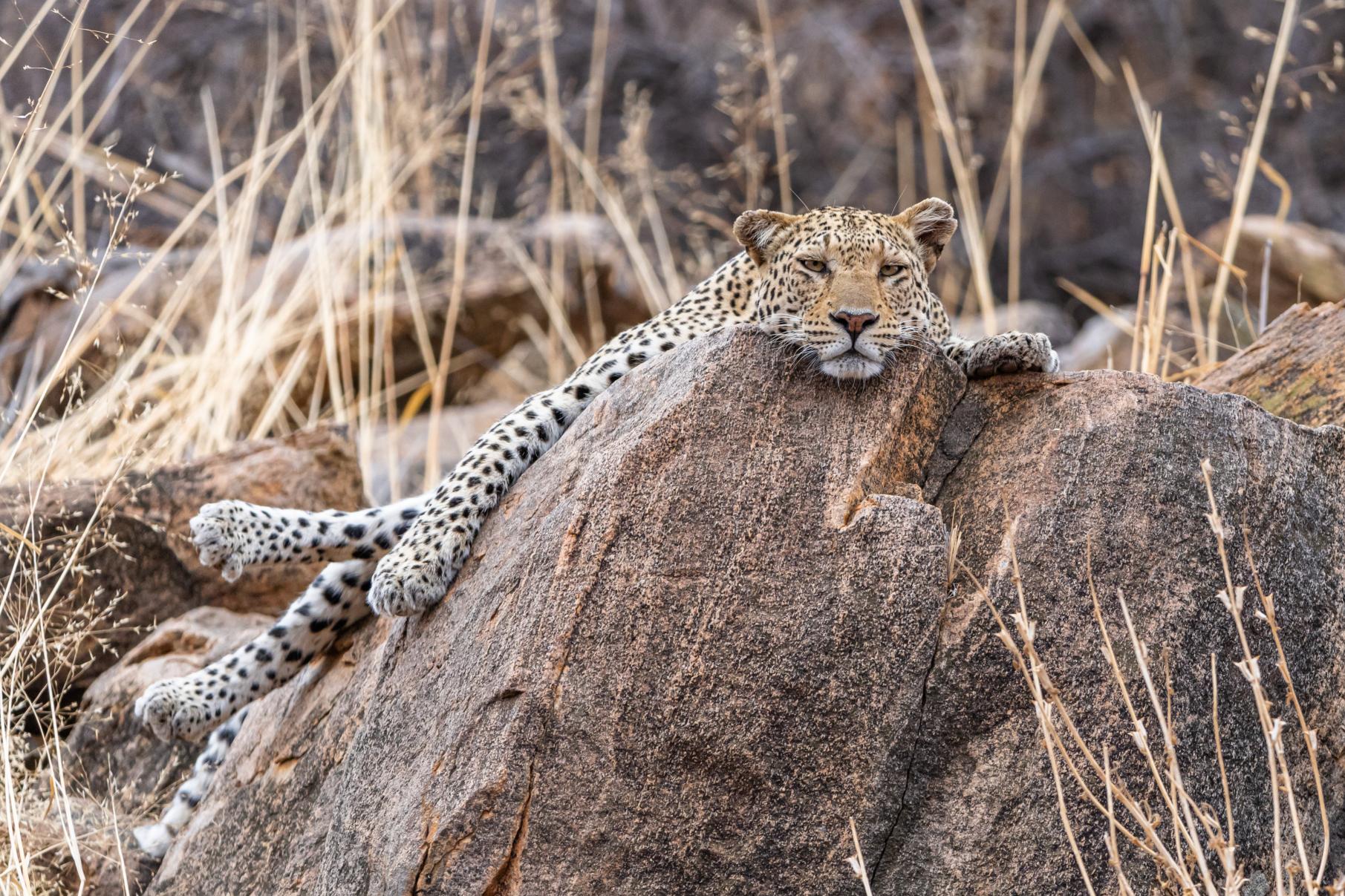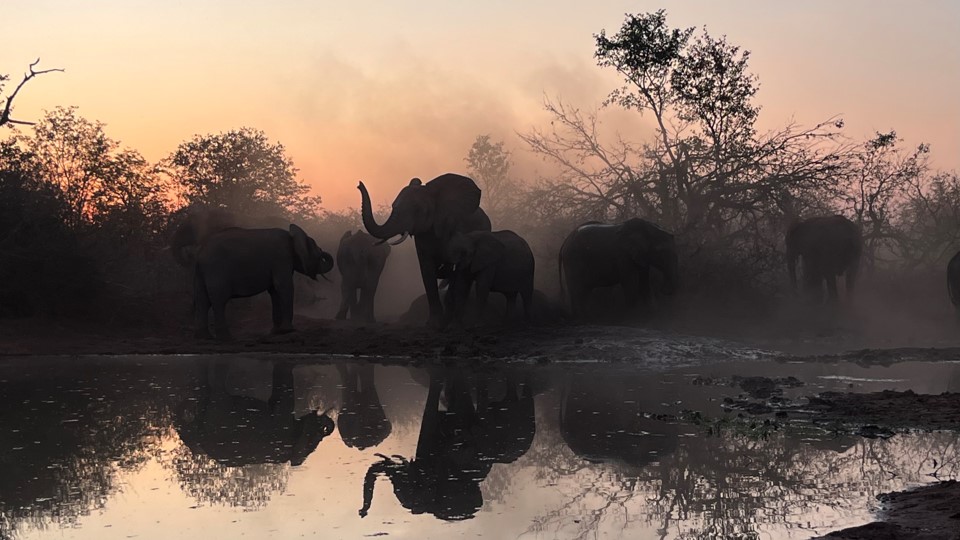WELCOME TO
CENTRAL TULI GAME RESERVE
At the Central Tuli Game Reserve in eastern Botswana, you’re not just watching from the sidelines - you’re in it. Think dusty boots, elephant tracks, hands in the soil, and the slow magic of wild places doing what they do best.
Mornings are for work that matters. Wrapping ancient trees so elephants don’t strip them bare. Repairing land that’s been scarred by erosion. Clearing out invasive plants to support the return of biodiversity and healthy ecosystems. You’ll be out there with a small team, learning as you go, alongside researchers tracking leopards and brown hyenas through the bush. It’s hands-on conservation - the kind that leaves a mark, on the land and on you.
Afternoons shift gears. Game drives and bush walks take you deep into the reserve - through baobab groves, across islands in the Limpopo, and into areas where wildlife still moves the way it always has. You’ll spot giraffes, elephants, lions, maybe even hyena after dark. There are sundowners on the koppies, the occasional elephant wandering through camp, and soccer matches with the staff when the day winds down.
The pace is real. The impact is real. And the experience - open to families, solo travellers, and anyone with a love for wild spaces - is something you’ll carry long after the dust has settled.
Why Book This Wildlife Conservation Experience Through Lost Adventures?
With over 15 years of experience in African travel and conservation - including as co-founder of the Modisa Wildlife Project in Botswana - Lost Adventures offers expert guidance, trusted support, and extended liability cover. There are no added fees, and if anything doesn’t go as planned, we’ve got your back.

Participating in regular game drives not only promises unforgettable experiences with diverse wildlife but also significantly contributes to the project's understanding of the reserve's inhabitants. By assisting the dedicated team, you'll play a crucial role in collecting valuable information on various species' social dynamics, dietary patterns, and other essential ecological aspects. These game drives enable the project to monitor and track the animals' behaviors, movements, and population trends. In turn, this information helps to maintain a healthy and balanced ecosystem within the reserve. The data collected during these drives is instrumental for the project team in making well-informed management decisions, such as the potential relocation or introduction of certain species to maintain biodiversity and the overall well-being of the reserve.

Volunteers play a significant role in restoring the reserve to its original, unspoiled state by assisting in the removal of non-native plants introduced by former landowners. By contributing to the restoration of the area's natural biodiversity, you'll actively support the preservation of native food sources for herbivores, safeguarding vital water resources, and minimising the risk of wildfires. Additionally, you'll aid in dismantling old constructions and fences that could potentially endanger the wildlife living in the reserve. This collaborative effort ensures the protection and sustainability of the reserve's ecosystem, benefiting both the flora and fauna that call it home.

By using camera traps, Shamwari can consistently monitor the reserve's wildlife, gaining a deeper understanding of the habits and patterns of nocturnal and elusive animals. These continuous observations provide valuable insights that contribute to the overall knowledge of the reserve's inhabitants. For certain high-profile species, such as cheetahs, remote tracking methods like telemetry are employed. This advanced tracking technology is especially useful in managing the interactions between wildlife and livestock on adjacent properties. By monitoring the movements of these predators, Shamwari can take proactive measures to prevent conflicts and protect both the wildlife and the domesticated animals in the surrounding areas. Annual game counts are conducted to determine the reserve's carrying capacity. These counts assist in making decisions about predator-to-prey ratios and the movement of animals on or off the reserve.

The Born Free Foundation has gained a well-deserved reputation for its exceptional work in tackling and spreading awareness about the awful treatment faced by wild animals in captivity across the globe. At the heart of Shamwari Game Reserve, you'll find the foundation's sanctuary and educational center, which provides a home for rescued lions and leopards that cannot be returned to their natural habitats. By participating in this behind-the-scenes tour, you'll have the opportunity to gain a deeper understanding of the sanctuary's daily operations and the level of care given to these majestic animals. This rewarding experience not only furthers the Born Free Foundation's mission but also educates you on the significance of wildlife conservation, fostering a deeper connection with the natural world.

The Shamwari Animal Rehabilitation Centre was created with the purpose of assisting in the recovery of injured wildlife found within the reserve and its neighboring areas. As a volunteer, you'll have the opportunity to join a tour of the center, during which you'll gain a deeper understanding of the entire process involved in rehabilitating injured animals, from the moment of their rescue until their ultimate release back into the wild. There may also be occasions where you are invited to support the veterinary nursing team or the vet, however, please note that such opportunities are not guaranteed and depend on the specific needs at the time. Regardless, your time spent volunteering will provide you with valuable insights into wildlife rehabilitation and the ongoing efforts to preserve these precious creatures.

During weekends, you typically have free time to explore and participate in a range of activities outside the reserve together with your fellow volunteers. The Shamwari team is more than happy to provide guidance and information on reputable local adventure and leisure providers, ensuring you have access to top-quality off-site experiences. These activities span from immersive cultural tours to exhilarating adventures such as canoeing, quad biking, horseback riding along the beach, and various coastal and marine excursions. It's important to note that these off-site activities are optional and come at your own expense, allowing you to tailor your weekend experiences to suit your personal interests and preferences.

At Shamwari, the research projects you will have the opportunity to be involved in are often carried out in partnership with a diverse range of research and academic institutions, both from South Africa and around the world. These fascinating initiatives encompass an extensive variety of topics, such as examining the reproductive patterns of elephants, collecting valuable data on elusive and lesser-known species like the brown hyena, and many other intriguing subjects. The primary goal of these research efforts is to enhance the team's understanding of these extraordinary animals, as this knowledge is crucial for devising more effective conservation methods and ensuring the protection of their natural habitats. By delving deeper into the distinct behaviours, requirements, and obstacles encountered by each species, the team is better equipped to create customised conservation strategies that address the specific needs of these animals.

While participating in the Shamwari project, you will have the opportunity to connect with neighboring communities and assist with the dedicated Shamwari team to promote the importance of safeguarding wildlife and emphasising the crucial role of conserving natural habitats within Shamwari and the adjacent areas. Your involvement can span various initiatives aimed at improving local living conditions and environmental sustainability. These may include creating and tending to vegetable gardens that promote self-sufficiency, engaging in inventive recycling projects to reduce waste and pollution, refreshing learning spaces by applying new coats of paint to classrooms, or building enjoyable and safe play areas such as jungle gyms for the community's children. These combined efforts contribute to a greater understanding and appreciation of the interdependence between humans and the natural world.

Throughout your stay at the project, you will have the chance to engage in a wide range of thrilling activities, and the longer your visit, the more diverse and enriching experiences you may encounter! These activities may include assisting with wildlife capture and relocation efforts, embarking on guided nature walks to learn more about the local flora and fauna, participating in memorable sleep-outs under the stars within the reserve, supporting the dedicated anti-poaching team during their vital patrols, and even lending a hand with essential veterinary tasks to ensure the well-being of the animals. Your days will be filled with adventure and purposeful work, as you contribute to the ongoing efforts of preserving the natural environment and its inhabitants. With a variety of tasks and experiences, you can expect to be fully immersed and constantly occupied during your time at this dynamic and action-packed game reserve.
HIGHLIGHTS AT Central Tuli Game Reserve
Habitat Restoration With Real Impact
You’ll take part in practical conservation work like wrapping ancient trees to protect them from elephants, restoring eroded land, and removing invasive plant species to bring back nutritious grasslands for wildlife.
Wildlife Tracking & Research
Track leopards, brown hyenas, and other elusive species alongside researchers. You’ll help collect field data, learn how to read the bush, and better understand the rhythms of wild animal behavior in this remote ecosystem.
Game Drives, Bush Walks & Night Safaris
Explore the reserve on daily game drives and guided bush walks, with the chance to spot elephants, lions, giraffes, and more. After dark, night drives reveal aardvarks, hyenas, and other nocturnal wildlife.
Sleep-Outs, Star Beds & Sundowners
Climb rocky koppies for golden-hour views, unwind with sundowners by the river, or sleep under the stars in a remote star bed. These unforgettable moments bring you even closer to the soul of the bush.
Life Along the Limpopo River
Camp life is simple, immersive, and close to nature. You’ll stay in dome tents beneath the trees, with elephants often passing through. Evenings are spent around the fire, sharing stories under Botswana’s night sky.
Community Connection & Cultural Exchange
Take part in local village visits and soccer matches with the team. It’s a chance to connect with the people behind the project and gain a deeper understanding of daily life in this extraordinary part of Botswana.
Activity Overview
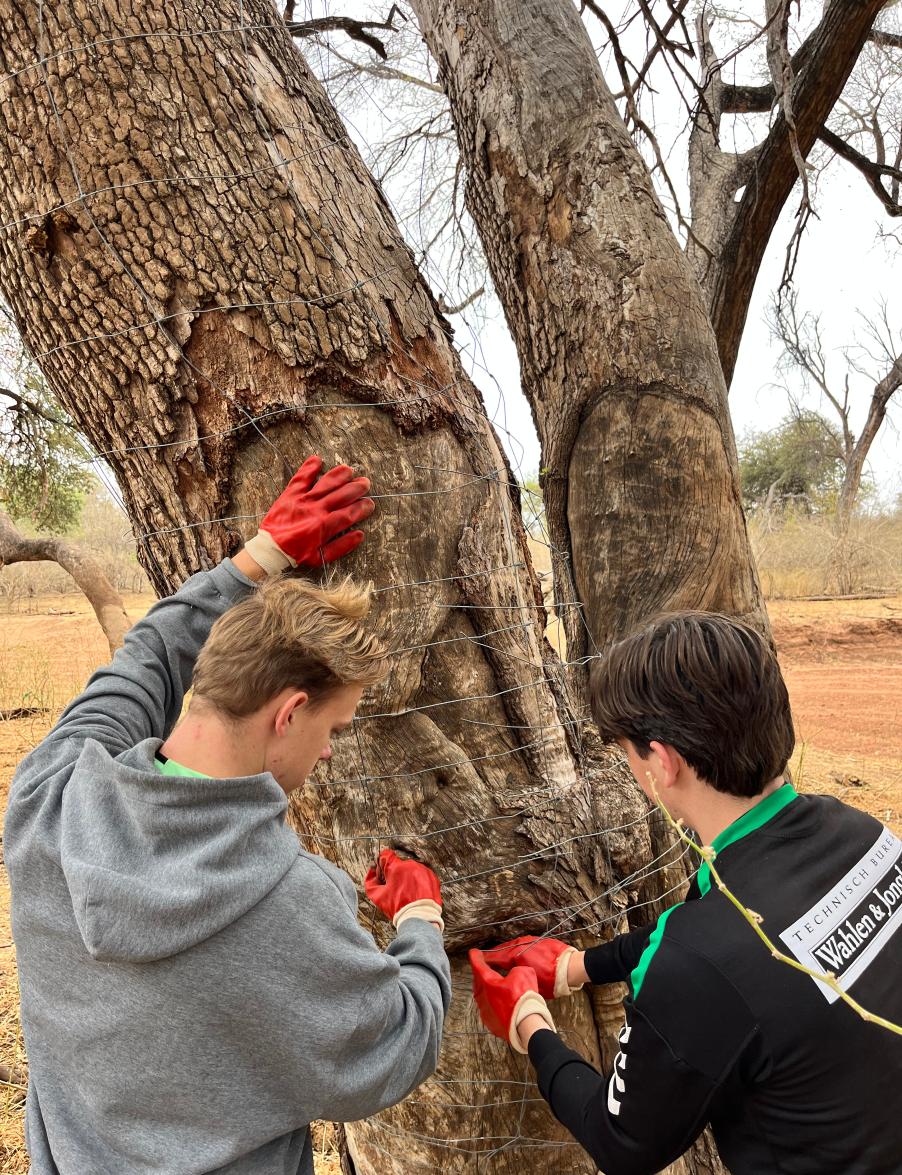
The conservation program includes daily, hands-on work that supports the long-term health of Botswana’s wild spaces. You’ll wrap ancient trees with mesh to protect them from elephants, repair erosion gullies, and remove invasive plants that are choking out native grasses.
These efforts help restore water retention, reestablish wildlife grazing zones, and strengthen the resilience of the entire ecosystem. It’s dirty, physical, deeply rewarding work - and it’s at the heart of the Central Tuli Game Reserve.
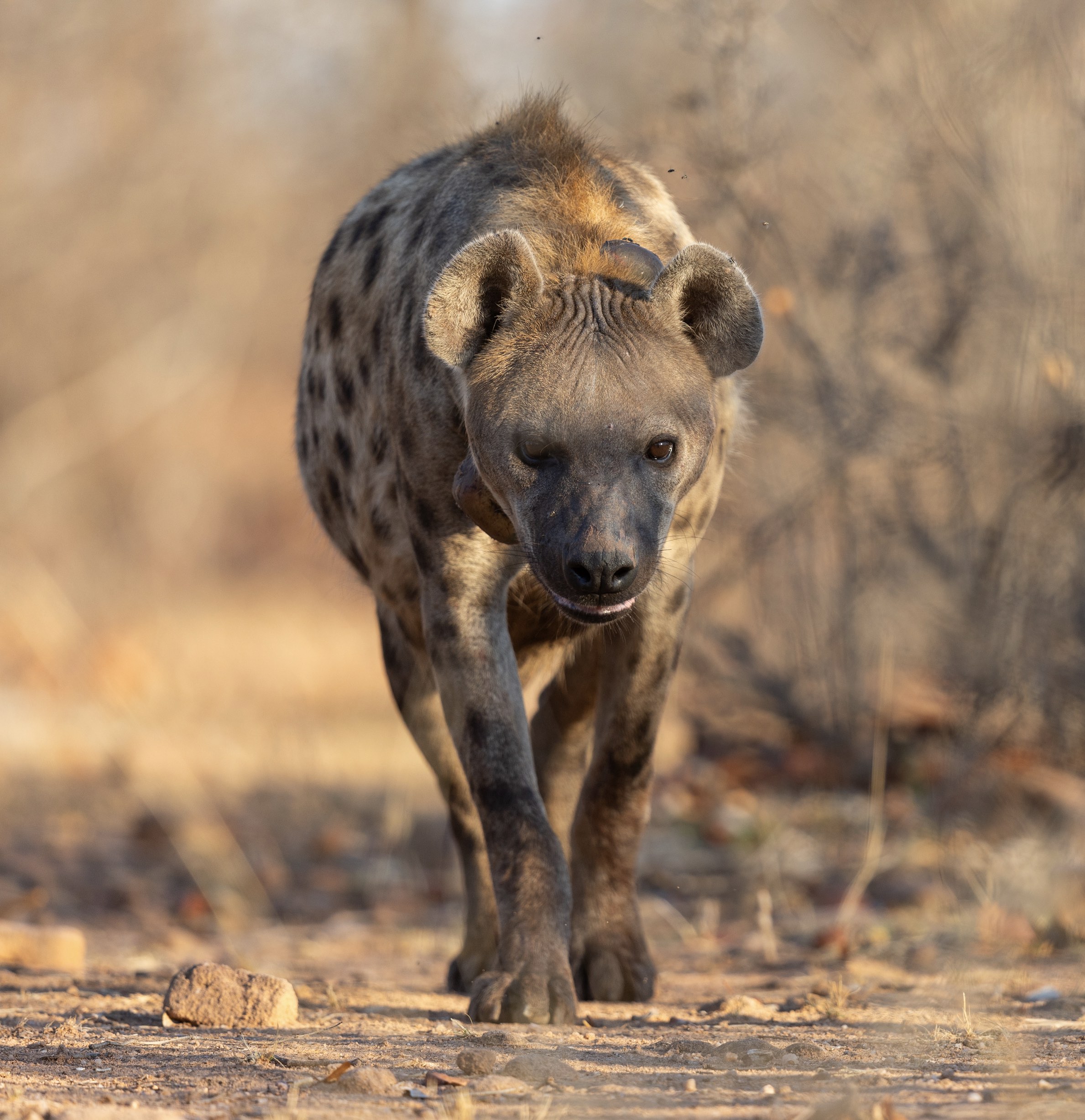
You’ll work alongside conservationists and researchers to monitor key species such as leopards, brown hyenas, and elephants. Using camera traps, spoor tracking, and data logs, you’ll contribute to a long-term research initiative focused on wildlife movement, behaviour, and ecosystem balance.
Whether you’re helping check traps, sort photos, or observe animal interactions, you’ll gain firsthand experience in how wildlife research supports species protection in the Tuli Block.
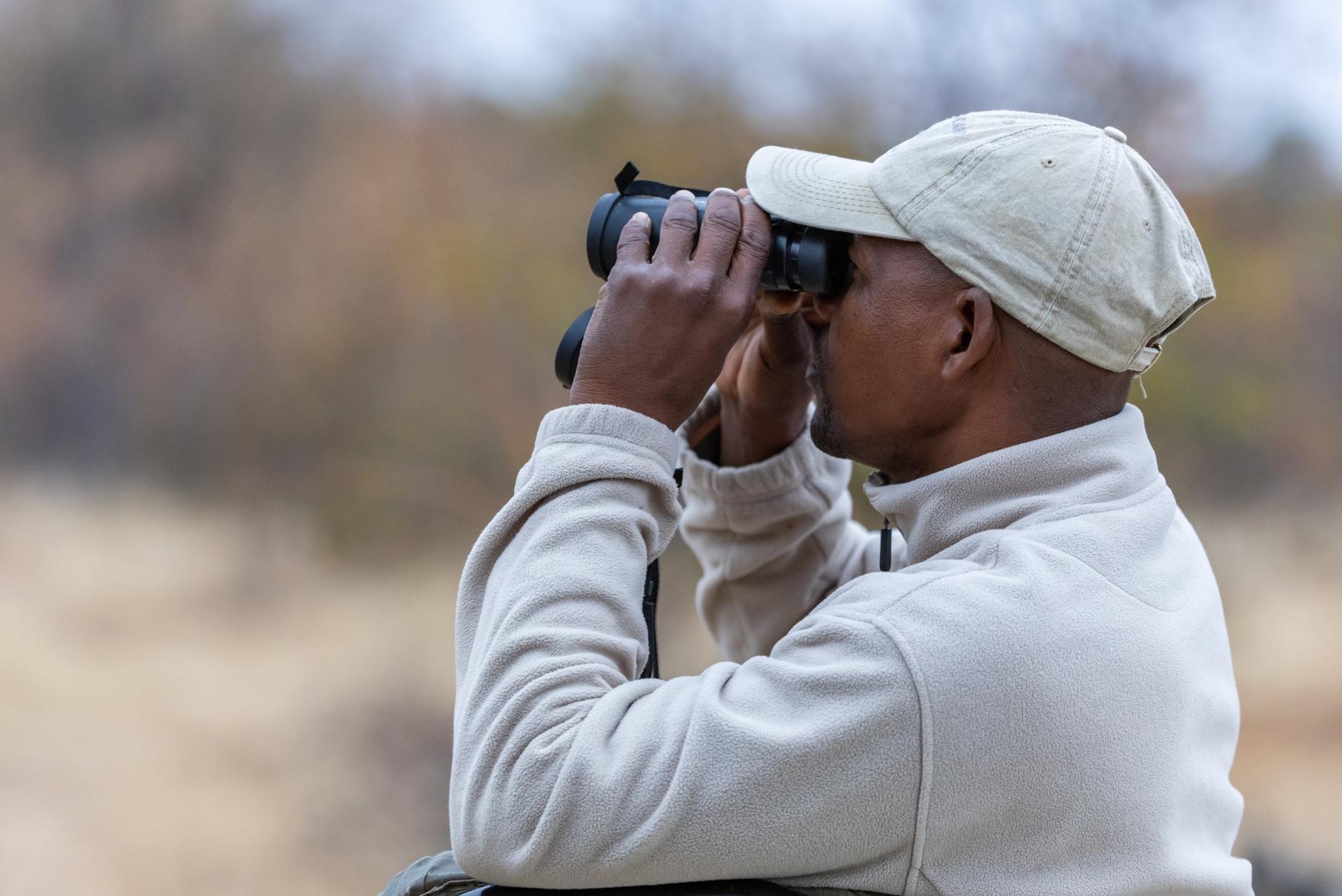
On foot is where you really feel the wild. You’ll take part in guided bush walks across the islands of the Limpopo River and hike up rocky koppies for wide-open views.
Along the way, you’ll learn how to track animals, identify signs of wildlife activity, and understand the role of native plants in traditional medicine and ecological balance. It’s an immersive, slow-paced way to connect with the land - raw, real, and unforgettable.
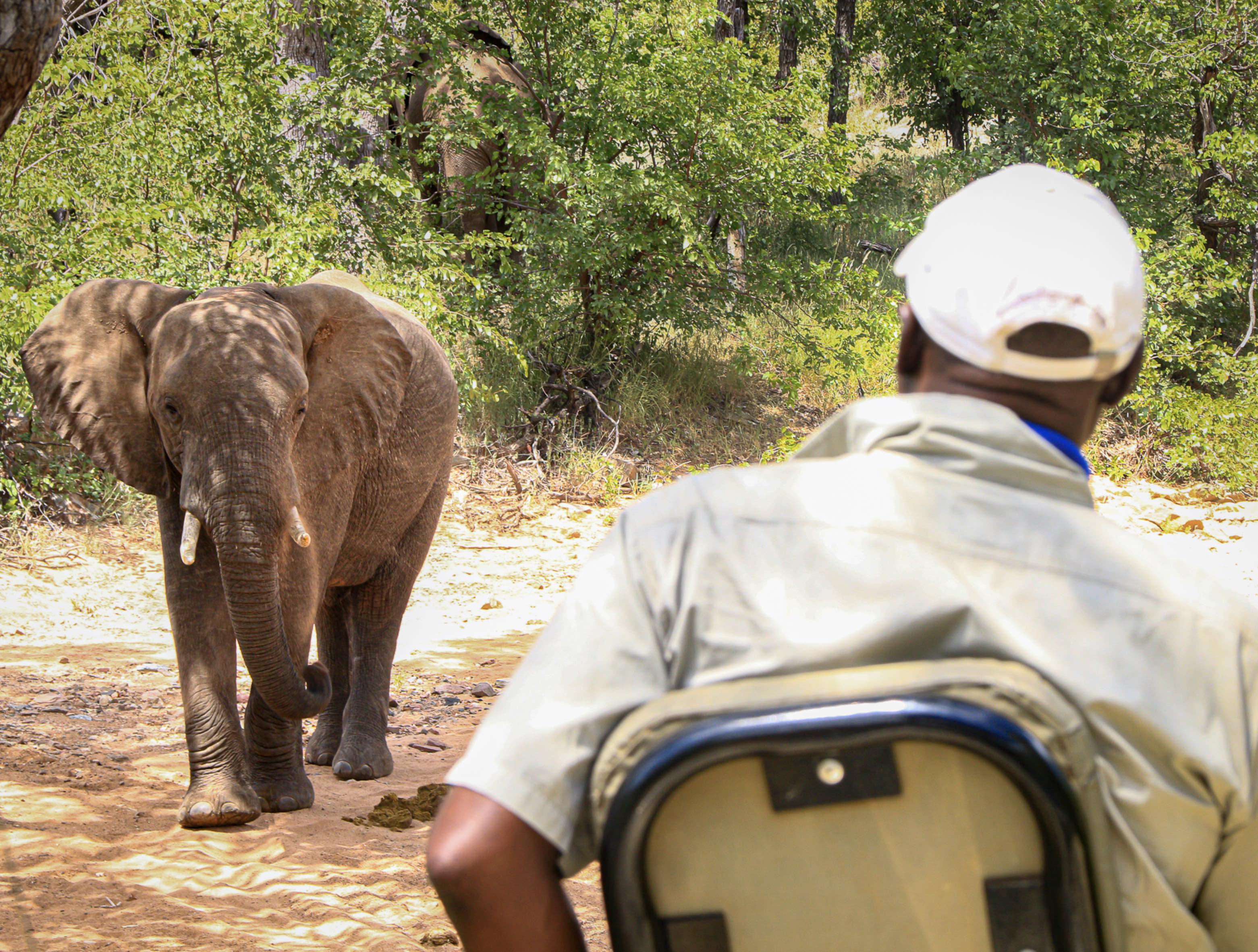
Daily game drives offer the chance to see Botswana’s iconic wildlife up close - elephants, giraffes, lions, antelope, and more. At night, you’ll head out again with a spotlight to look for nocturnal animals like aardvarks, hyenas, and bat-eared foxes.
These drives are not just about wildlife sightings, but about learning to interpret animal behaviour, understand predator-prey dynamics, and appreciate how conservation shapes safari experiences in the Tuli region.
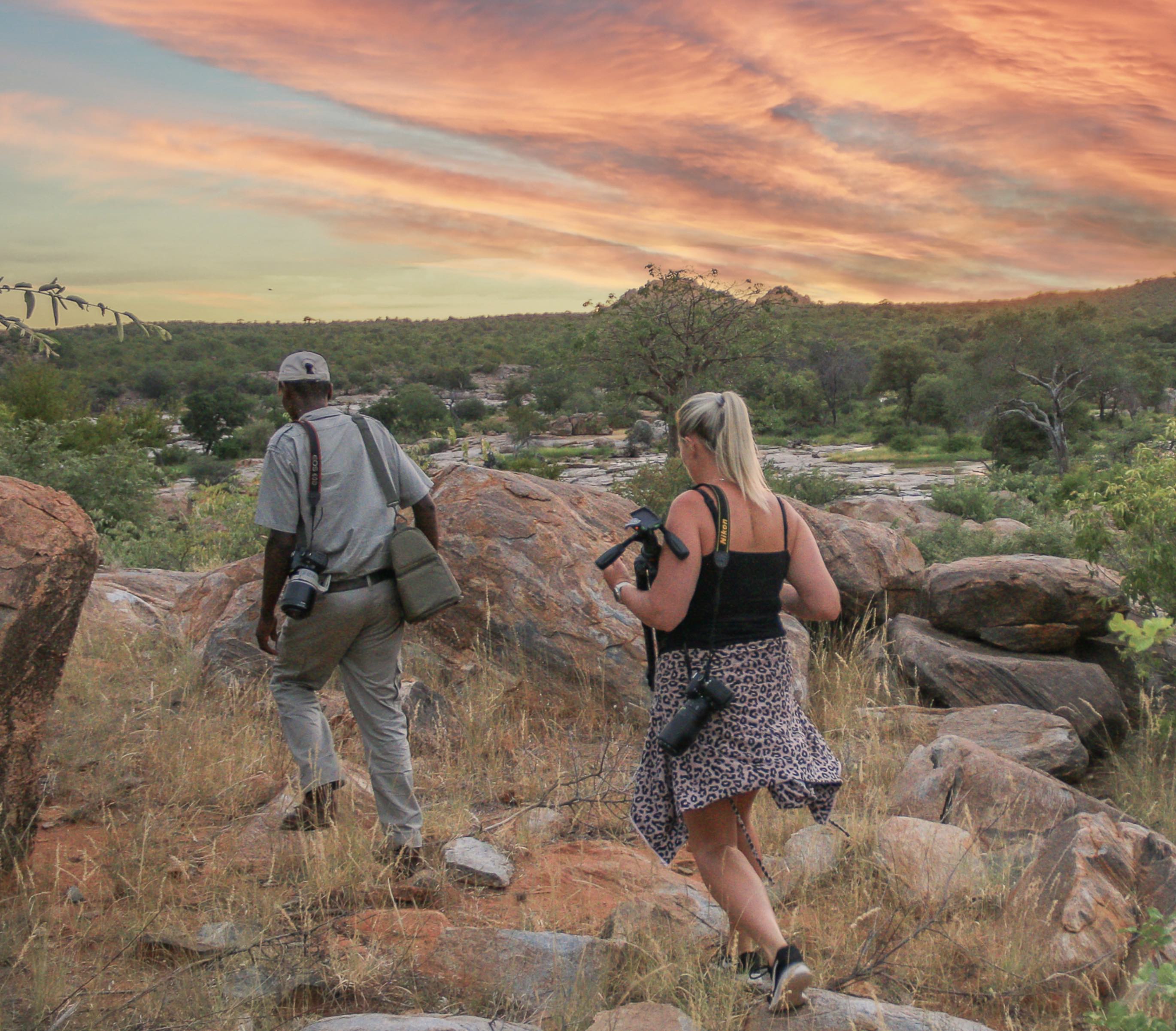
For those with a keen eye, there are endless opportunities to observe and photograph wildlife, native flora, and birdlife. The on-site photography hide offers a quiet space to capture animals undisturbed, while guided outings help you discover the role of plant life in supporting biodiversity.
With over 350 bird species in the region, Tuli is also a paradise for birders and nature lovers with a passion for detail.
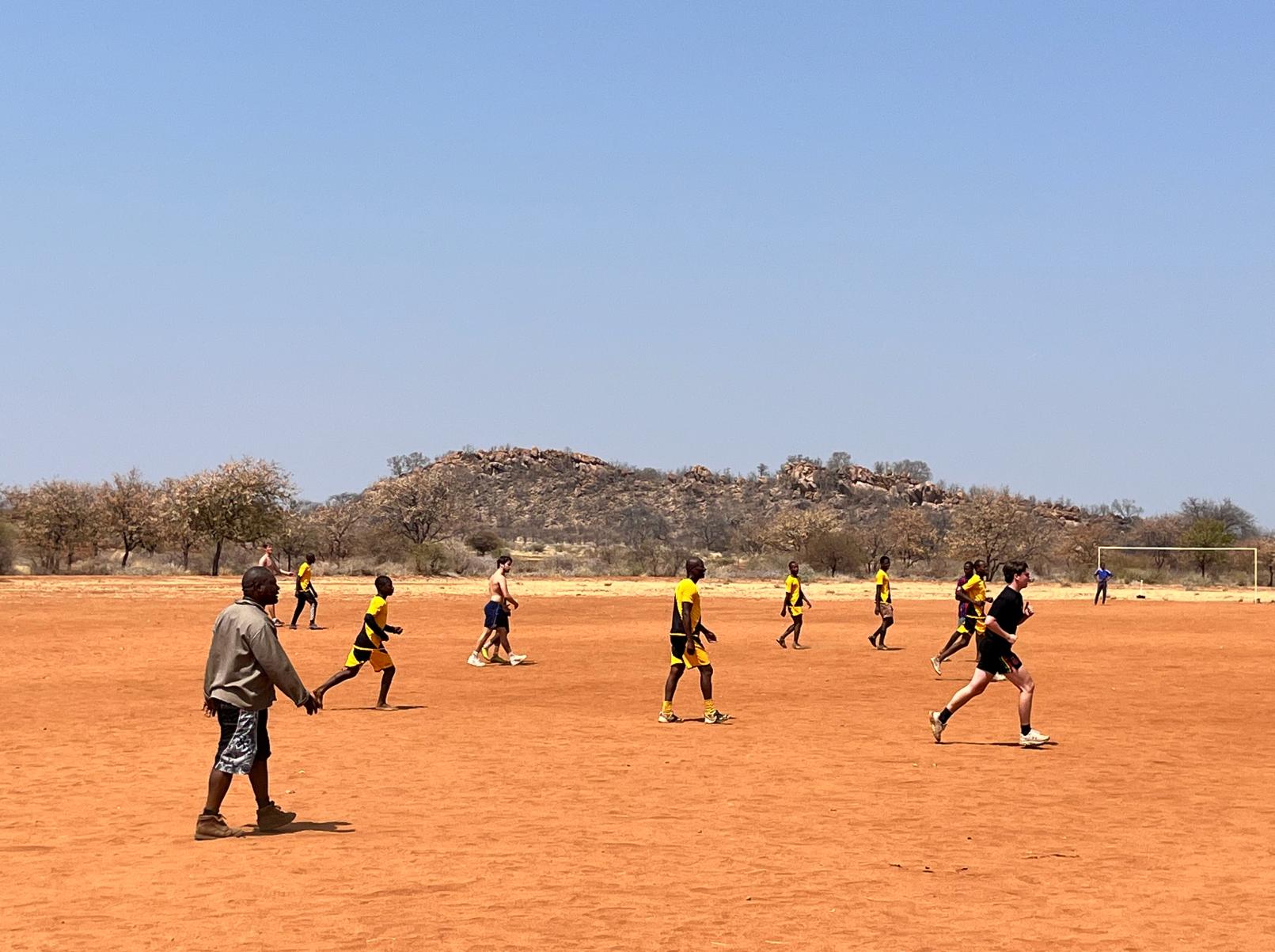
You’ll have the chance to engage with nearby communities through village visits and friendly soccer matches with staff. These informal, joyful exchanges deepen your understanding of the region’s culture and the relationship between people and wildlife.
Conservation here isn’t just about the animals - it’s about creating shared value between local communities and the protected land they live alongside.
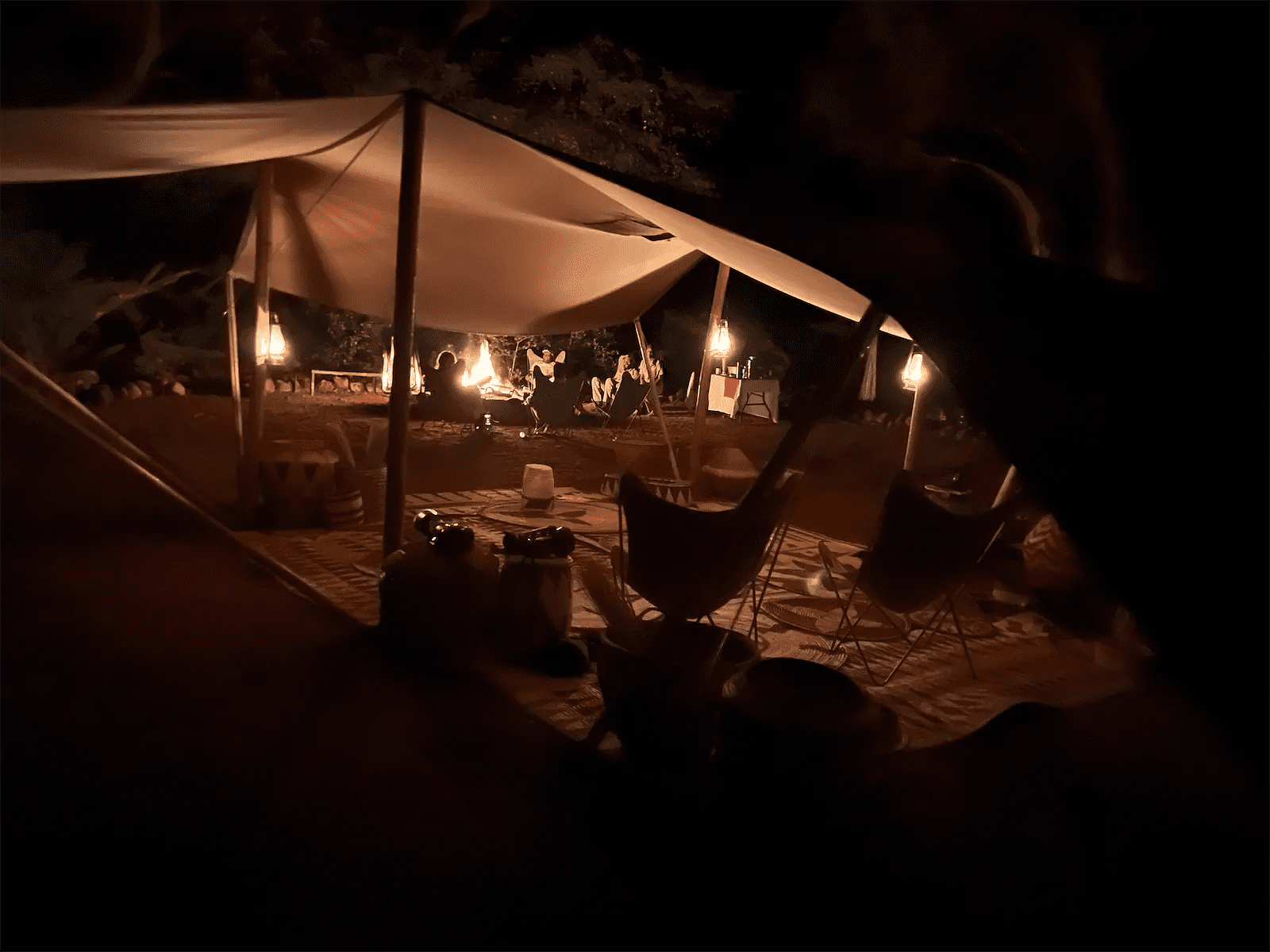
Camp life offers its own kind of magic. Sleep under the stars in a remote star bed, relax by the Limpopo with a sundowner, or enjoy a bush dinner surrounded by lantern light.
Optional experiences include visits to ancient San rock art sites, riverside wellness sessions, and special moments like romantic celebrations. These slower, soulful elements bring balance to your stay and offer space to reflect.
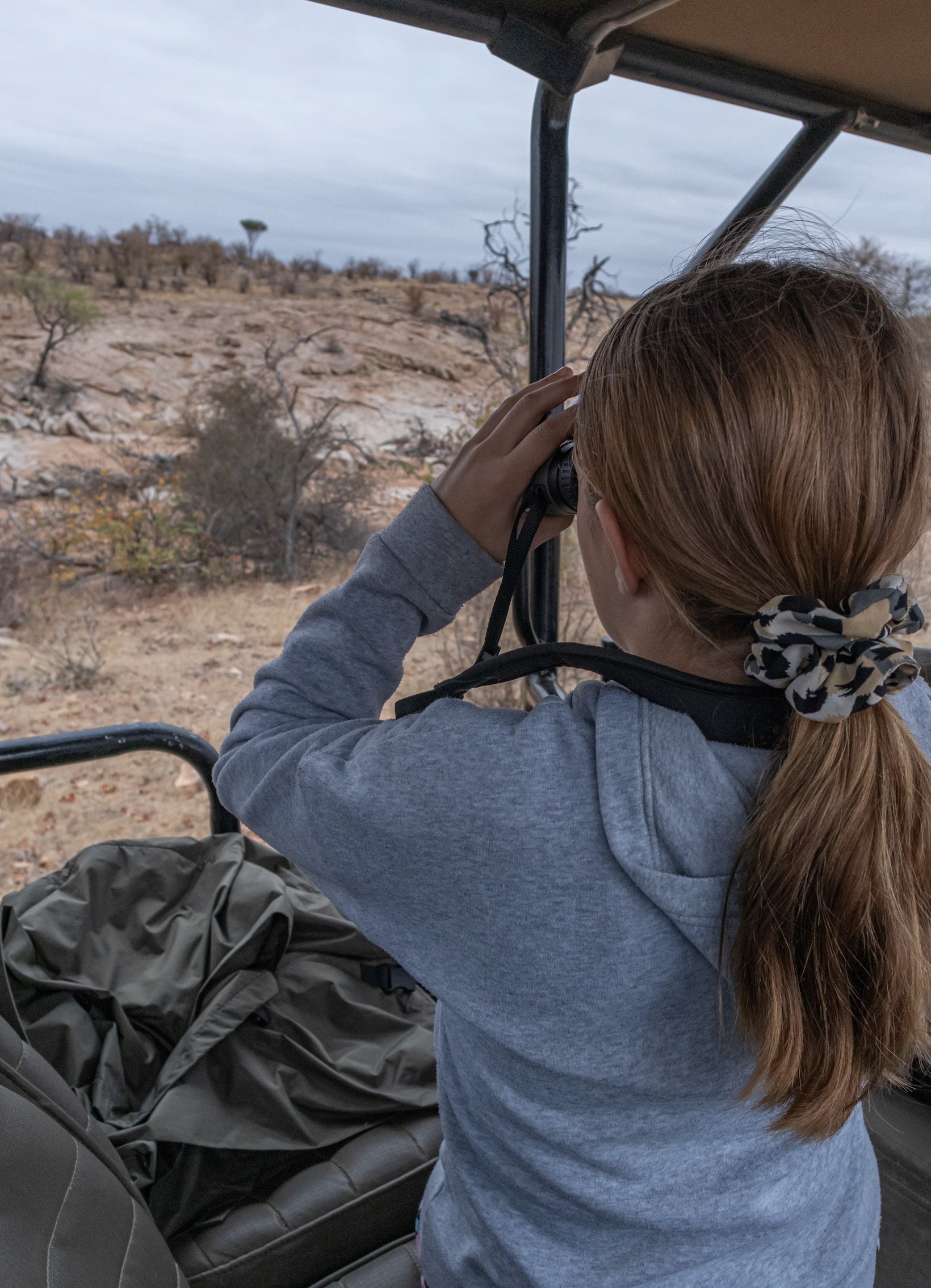
Central Tuli Game Reserve welcomes families with children aged 10 and up. Young participants are introduced to wildlife conservation in a safe, hands-on way - from tracking to tree wrapping to nature walks.
Activities are adjusted based on age, and the setting offers a rare opportunity for children to unplug, explore, and form a lasting connection with nature and wildlife. For families seeking a meaningful safari with purpose, this is it.
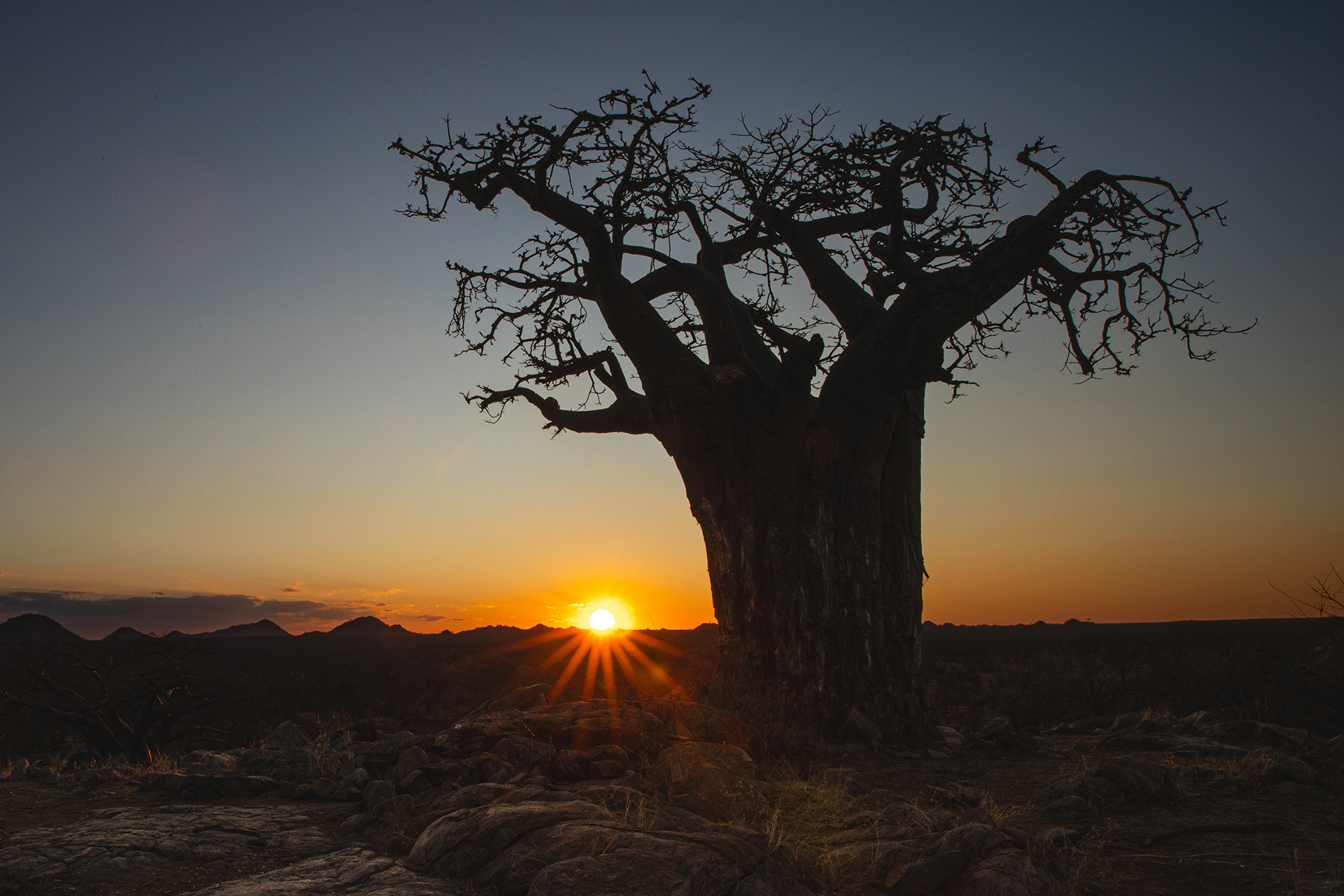
dive into the details

Accomodation
Volunteers stay in two-person dome tents set beneath the trees along the Limpopo River. Each tent is equipped with stretchers and bedding, offering a simple but comfortable stay in a truly wild setting. Elephants are known to pass through camp, adding to the sense of connection with nature. Trained staff are on-site day and night to ensure safety and support.
Communal Facilities
Harena River Camp features a shared dining area, outdoor showers, ecological toilets, and a central fire pit for meals and evening gatherings. The setting is open-air and unfenced, immersing you in the sounds and sights of the bush. A shaded lounge area provides space to relax between activities, and there’s a dedicated charging station at the reception tent.
Laundry
There is no laundry service at Harena River Camp. Volunteers are advised to bring enough clothing for the full duration of their stay or handwash essential items.
Meals
Three home-cooked meals are served daily by the camp team, with plenty of snacks, tea, coffee, and drinking water available throughout the day. Meals are shared communally and often enjoyed around the fire. Dietary preferences can be accommodated with advance notice, though options may be limited in this remote setting.
Communication
Limited Wi-Fi is available in the main tent via satellite connection. While the connection can vary, there is enough signal for basic messages and checking in with family or work when needed.
Electricity
There is no electricity in the tents. A charging station is available at the camp’s reception tent, using Botswana’s standard 3-round pin outlets. Volunteers are encouraged to bring a power bank for convenience, as access to charging is limited and scheduled.

Dates
The program starts and ends on Mondays, with options to book from 1 to 4 weeks
Number of Volunteers
Up to 8
Prices (2025) per person sharing
900 Euro per week + transfer between Johannesburg Airport and the camp
The Price Includes
The Price Does Not Include

Location
Central Tuli Game Reserve lies along the banks of the Limpopo River, in Botswana’s wildlife-rich Tuli Block. This remote region is known as the Land of Giants for its towering baobabs, rugged rock formations, and large herds of elephants.
The project operates within Kwa Tuli Private Game Reserve, a pristine area home to elephants, lions, leopards, cheetahs, brown hyenas, and over 350 bird species. Conservation work here is focused on restoring habitats, monitoring species, and protecting the biodiversity of one of Botswana’s most ecologically important landscapes.
Climate & Seasons
December to March (Rainy Season):
This is the greenest time of year, with occasional thunderstorms and warm, humid days. Average temperatures range from 20–35°C (68–95°F). Vegetation is lush, and the landscape comes alive with birdlife and young animals.
April to May (Autumn Transition):
A beautiful time to visit, with clear skies and cooling temperatures. Expect warm days around 25–30°C (77–86°F) and cooler nights. The bush begins to dry out, improving visibility for wildlife viewing.
June to August (Dry Winter):
Winter in Tuli is dry and crisp, with sunny days and cold nights. Daytime highs are around 22–28°C (72–82°F), while nights can drop to 5–10°C (41–50°F). This is the best time for walking safaris and clear stargazing.
September to November (Build-Up Season):
Temperatures rise significantly, often reaching 35–40°C (95–104°F). Wildlife gathers near water sources, making for excellent sightings. While hot, this season offers dramatic skies, active predators, and striking sunsets.

This guide outlines key travel details for your journey to and from the Central Tuli Game Reserve in Botswana, including flights, transfers, visa guidelines, and health requirements.
Flight Itinerary
Volunteers joining the Central Tuli Game Reserve should book their flights to OR Tambo International Airport (JNB) in Johannesburg, South Africa. You’ll need to arrive at least one day prior to your Monday morning transfer, as the journey to camp begins early.
Return flights should be booked for the day after your scheduled end date, as the return transfer from the camp arrives back in Johannesburg late in the evening.
Airport Transfer
A shared transfer between Johannesburg and the project is arranged for all volunteers at an additional cost. The drive takes approximately 9 hours each way and is coordinated to align with project start and end dates.
Vaccinations
It is strongly recommended to consult your healthcare provider before travel. The following vaccinations are advised for travel to Botswana:
- Hepatitis A and Typhoid: Recommended for all travellers.
- Tetanus: A booster may be advisable.
- Rabies: Recommended for those working closely with animals.
- Malaria: While the area is considered low-risk, discuss antimalarial medication with your doctor.
Visa Information
Citizens from most EU countries, the UK, USA, Canada, Australia, and New Zealand do not need a visa for stays under 90 days. Your passport must be valid for at least 6 months beyond your intended stay and have 2 blank pages for entry stamps.
Travel Insurance
Comprehensive travel insurance is mandatory. It should cover medical emergencies, trip delays, evacuation, and cancellations. Please ensure your policy includes coverage for volunteering activities.
Credit Card & Cash
Payment for on-site extras (drinks, add-ons, etc.) is typically accepted in cash (South African Rand or Botswana Pula). Credit card acceptance may be limited, so it is recommended to bring some local currency.

“SAFARI WITH LOST ADVENTURES
Having just returned from Botswana and two weeks at Koro Island Camp and Koro River Camp, we must commend Mikkel for helping with advice in the best possible way. We wanted to combine the safari with something more. Mikkel recommended starting with Volunteer work for the Foundation behind Koro camps. Fantastic experience to meet nature and people in the middle of the bush and hear their stories. We can only recommend Mikkel in the best way - he found exactly the experience we dreamed of.“
-TINA & JESPER PALMQUIST, DENMARK
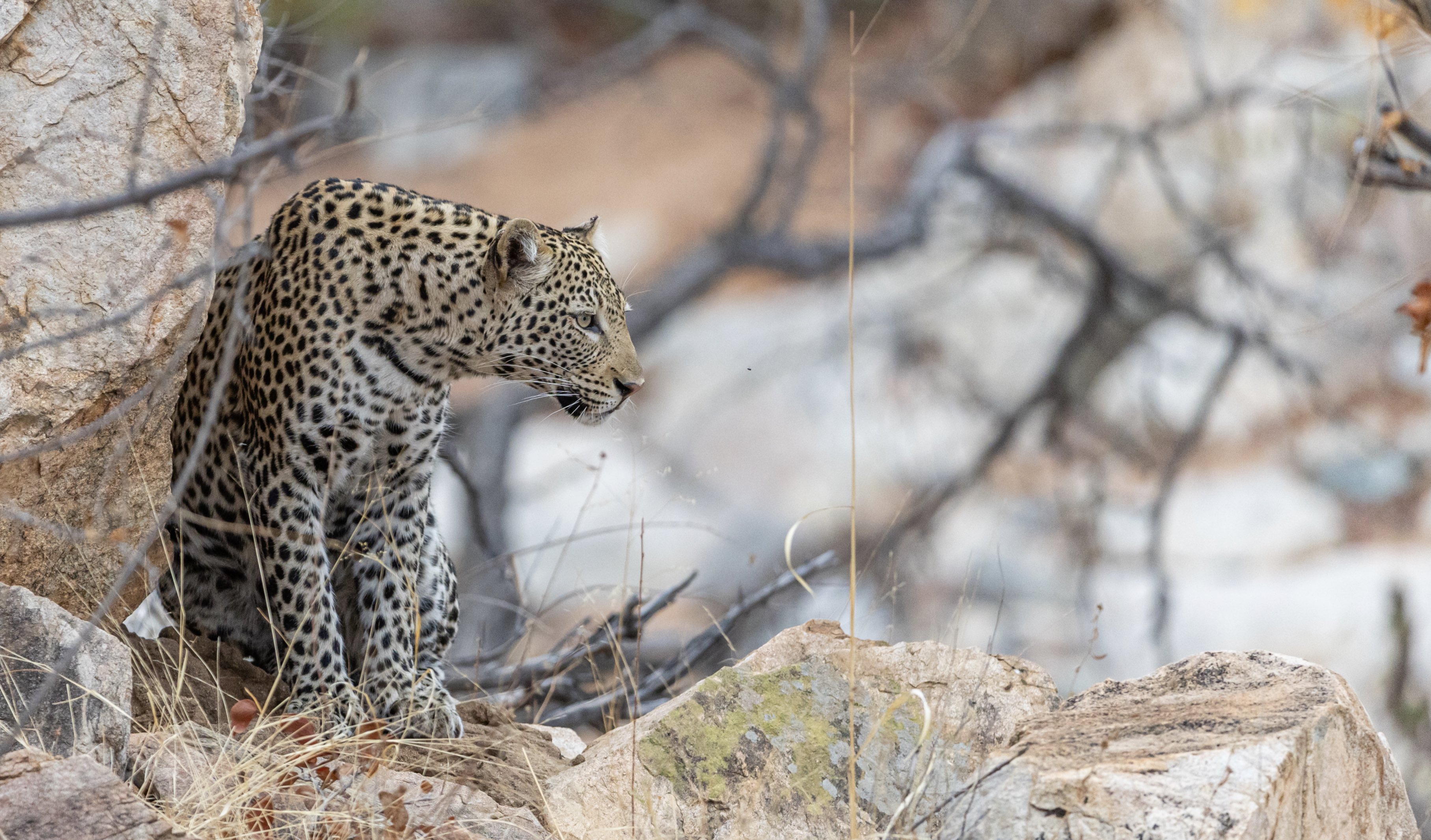
Why we love The Central Tuli Game Reserve
This is where hands-on conservation meets real safari adventure – wild, purposeful, and full of moments that stay with you. Here’s why we love it.

Wildlife Encounters with Purpose
This is not your typical safari. From tracking lion movements to caring for orphaned wildlife, every encounter means something. You’re not just observing the bush – you’re part of protecting it.

Hands-On Conservation in Action
Get involved where it matters most. Whether it's rehabilitating rescued animals, supporting anti-poaching patrols, or restoring habitats, you’ll gain real skills and leave a tangible footprint.

Unfiltered Bushveld Beauty
Waking up to the roar of lions, sundowners by the river, sleeping under the stars – the Tuli Block delivers the raw, rugged charm of Botswana’s wild frontier in all its glory.

An Adventure That Stays With You
This is the kind of experience that shifts something inside. Through expert guidance and daily challenges, you’ll return home with a deeper connection to the wild – and to yourself.
Make an enquiry for
Central Tuli Game Reserve
Once we receive your enquiry, we will swiftly check for availability and aim to get back to you within 2 business days. Please note that sending this enquiry does not create any obligations for you.
